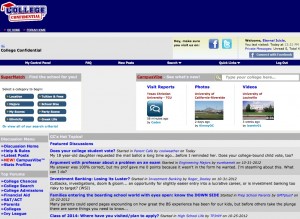Like the college application process, interviews are the only way an applicant can really show off their personality. If you have an interview for a job, congrats! You are really in a great position – you know that the employer thinks you have the credentials, work experience, and skill set needed for the position. Interviews are for confirming that you would fit in, that you’d be a positive addition to the workforce, and that you’re able to communicate clearly. Below is a list of websites that talk about what interviewers look for, as well as my responses to them. I draw on my experiences interviewing both in person and on the phone.
Positivity is a must – though interviewers want to see that you take the job seriously, speaking with anything but a smile is not going to win over your interviewer. Smiling also reinstates how confident you are and how excited you are about the job opportunity. Maturity is also needed, especially when you are up against other college-aged candidates because it will set you apart. I tend to speak really fast and use abbreviations/slang/”like” so I always watch myself and make sure I speak slowly during interviews. I have been interviewed by people who are young and seem buddy-buddy, and I’ve been tempted to disclose fun stories and start using slang. One interviewer started talking about concerts, and while I could have talked all about my concert-going experiences, I caught myself because it was not work-related. Also, appearance is the first thing interviewers register when they see you. There’s no “magic” outfit that will get you the job so anything goes as long as you look neat, clean, and professional. I always wear a dress, blazer, black shoes, and no jewelry with my hair pulled back.
There are important qualities on this list that interviewers look for, though it is hard to get these qualities across sometimes. A common question in an interview is “tell me about your previous job”. I always have a 2-minute response prepared that shows I am a hard worker [I worked 40 hours a week in my last job], a team player [I explain a school project I worked on and what my role was in it], and a problem solver/prepared/detail-oriented [I explain a problem that arose during this group project and the steps I took to fix it]. When prepping for this interview question, I always think “ok, what qualities of mine do I want them to know I have,” then I memorize a few work/school experiences that show these qualities.
Do. your. research. Citing a recent article/news event that is relevant to the company, or even a study conducted by the organization, will show you are already invested in the job and that you have respect for the organization. I do this when the hiring manager asks “how did you find out about us?” Speaking enthusiastically about what you learned so far about the company gives the hiring manager confidence that you will be a positive contributor. Also be prepared with a copy of your resume, references, transcript, and cover letter. One time I did not bring these materials in because I assumed they would already have them from my application – turns out they were somewhat disorganized and lost my materials, so when it was time for them to choose an intern, they did not have my cover letter, resume, or references.
If you stumble over words, forget the name of your old boss, or mispronounce something, don’t freak out! In my experience, it’s the overall impression from the interview that is important i.e. how you carry yourself. Interviews are inherently nerve-wracking, but have the confidence that you’ve made it this far, read up on the organization, and look sharp!



